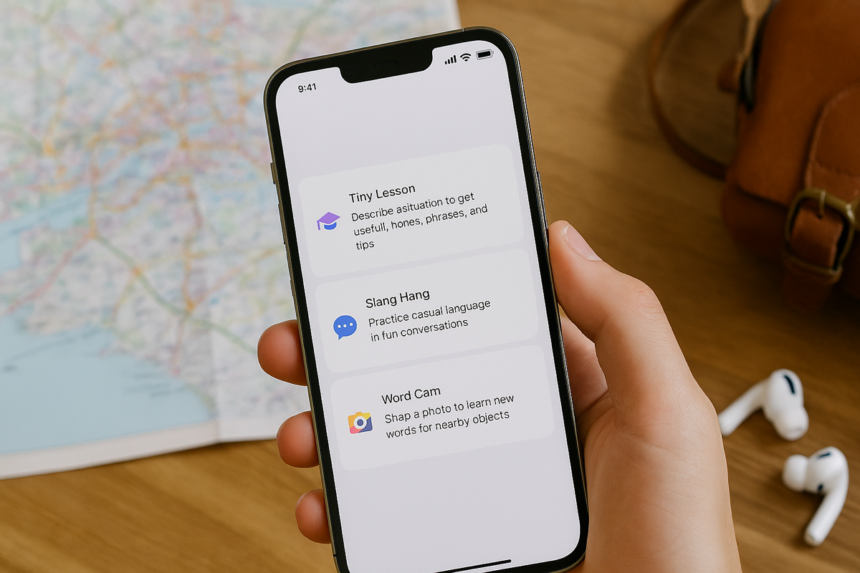Trying to improve your French? Want to learn Italian? Pick up Hindi to understand a favorite Bollywood film better? Well, Google is attempting to revolutionize how we learn languages with its latest generative AI tools, designed to make language learning more accessible and fun. These tools are part of a new experiment, Little Language Lessons, which leverages Google’s powerful Gemini AI models. Whether you’re on the go or just looking to learn new words in a real-life context, these tools are set to transform your language-learning experience.
What’s Happening & Why This Matters
Google’s Little Language Lessons is a trio of new AI-powered tools to make language learning as easy and fun as possible. The tools are built using Google Gemini and are available on Google Labs, accessible through any browser.
The three tools are designed to offer interactive, personalized experiences:
- Tiny Lesson allows users to select a target language and scenario, then generate relevant phrases and tips. For example, you can ask for Hindi words commonly used during grocery shopping, and the tool will provide useful phrases and essential grammar points.
- Slang Hang lets you practice casual conversations in your target language, including dialect options. The tool automatically generates a conversation between two people, and you can click the space bar to hear sentences spoken out loud. While this tool doesn’t allow custom scenarios, the refresh option offers new, automated dialogues every time.
- Word Cam offers an exciting feature where you can snap a photo of objects, and the app will translate them into your chosen language. Clicking on a labeled object provides additional related words and phrases to expand your vocabulary.

These tools aim to allow language learners to practice real-world scenarios and learn vocabulary in a practical context. Google hopes to create a more engaging and effective learning experience by combining generative AI with real-life applications. The tools are still in the early stages of development, and Google has noted that they are part of an experiment that may be available for a limited time. Google also warned that some results may be inaccurate or offensive, as with any early-stage product.
The move comes as Duolingo, a popular language-learning app, also shifts towards an AI-first model, eliminating some human-driven tasks in favor of AI replication. This signals a growing trend in the industry where AI is becoming dominant in language education.

TF Summary: What’s Next
Google’s Little Language Lessons experiment is an exciting glimpse into the future of language learning, where AI will play a central role. While still in testing, the tools show a lot of promise in creating personalized, accessible, and fun ways to learn languages. As Google refines its technology, we may see even more immersive features that take language learning to the next level.
With competitors like Duolingo embracing AI-first strategies, the language education landscape is poised for significant transformation. It will be interesting to see how Google and other tech giants continue to innovate in this space, shaping the future of AI-powered learning.
— Text-to-Speech (TTS) provided by gspeech


